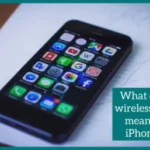Navigating the labyrinthine world of digital communication necessitates decoding a constantly evolving lexicon. Acronyms and abbreviations proliferate, each a linguistic shortcut designed to compress meaning and expedite exchanges. Among these, “nty” holds a specific, albeit often blunt, connotation. It’s more than just a few keystrokes; it’s a micro-statement laden with implications. Understanding these nuances is crucial for effective digital discourse. Prepare to recalibrate your understanding of this seemingly simple abbreviation.
The Primordial Meaning: A Rejection in Miniature
At its core, “nty” stands for “no thank you.” This seems straightforward enough. It’s a truncated declination, a concise refusal offered in the digital realm. Its primary function is to swiftly dismiss an offer, suggestion, or proposition. Think of it as the digital equivalent of a curt headshake – economical and to the point. However, the simplicity of the definition belies a more complex reality.
Contextual Cadences: Decoding the Nuances of Usage
The impact of “nty” hinges heavily on context. A seemingly innocuous “nty” can morph into something quite different depending on the surrounding conversation and the relationship between the interlocutors. Consider these scenarios:
- The Impersonal Rejection: In online marketplaces or forums, “nty” is often employed as a standard response to offers deemed too low. It conveys a firm rejection without necessitating further elaboration. It’s efficient and pragmatic.
- The Social Media Snub: On platforms like Twitter or Instagram, “nty” might be used in response to unwanted advances or solicitations. Its brevity can be interpreted as dismissive, signaling a lack of interest in engaging further. The intent is usually to shut down the conversation quickly.
- The Gamified Refusal: Within online gaming communities, “nty” is a common shorthand for declining trades or requests. Time is often of the essence in these environments, and efficiency reigns supreme.
- The Passive-Aggressive Dismissal: In personal conversations, especially via text messaging, “nty” can sometimes carry a subtle sting. It might indicate annoyance or impatience, particularly if delivered without any additional explanation or softening language. The lack of elaboration amplifies the perceived negativity.
The key takeaway: never divorce the abbreviation from its operational milieu.
The Perceived Polarity: Rudeness vs. Efficiency
One of the primary debates surrounding “nty” revolves around its perceived level of politeness. Some perceive it as inherently rude, viewing its conciseness as a sign of disrespect or disinterest. The absence of a more elaborate explanation can feel dismissive, especially if the person making the offer has invested time and effort. Others, however, champion its efficiency. In a world saturated with information, “nty” offers a succinct way to decline without wasting time or resources. This perspective emphasizes practicality and directness.
Furthermore, generational differences also play a role. Younger demographics, who are more accustomed to rapid-fire digital communication, may find “nty” perfectly acceptable, whereas older generations might perceive it as impolite.
Alternatives to “nty”: Navigating the Art of Polite Rejection
If you’re concerned about potential misinterpretations, several alternatives can soften the blow of rejection:
- “No, thank you!”: Adding an exclamation point can inject a touch of enthusiasm and positivity.
- “Thanks for the offer, but no thank you.”: Acknowledging the offer before declining demonstrates consideration.
- “I appreciate the offer, but I’m not interested at this time.”: This option provides a slightly more detailed explanation without revealing too much.
- “Not for me, but thanks!”: A casual and friendly alternative, particularly suitable for informal settings.
The selection of the optimal alternative depends on the specific context and your relationship with the other party.
Beyond the Binary: Exploring the Subtext
Delving deeper, “nty” can sometimes be a preemptive defense mechanism. Individuals might employ it to avoid protracted negotiations or uncomfortable situations. It acts as a shield, preventing further engagement. Consider the scenario of receiving an unsolicited message on a dating app. An immediate “nty” can preempt a potentially unwanted conversation.
Conversely, the absence of “nty,” when one might be expected, can also be telling. A delayed or nonexistent response can signal interest or, at the very least, a willingness to consider the proposition further. The very act of withholding the abbreviation becomes a form of communication in itself.
The Future of Digital Shorthand: Evolution and Adaptation
As digital communication continues to evolve, the meaning and usage of abbreviations like “nty” will inevitably shift. New acronyms will emerge, and existing ones will acquire new connotations. The key to effective communication lies in remaining attuned to these changes and adapting your linguistic repertoire accordingly. Understanding the nuances of digital shorthand is not merely about deciphering abbreviations; it’s about comprehending the underlying social dynamics that shape our interactions in the digital sphere.
The seemingly insignificant “nty” serves as a microcosm of the broader challenges and opportunities presented by digital communication. It underscores the importance of context, politeness, and adaptability in navigating the ever-changing landscape of online interactions. So, the next time you encounter “nty,” remember that it’s more than just a rejection; it’s a reflection of our digital age.









Leave a Comment